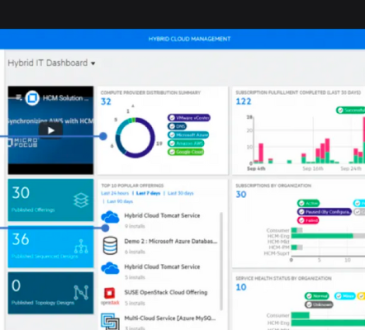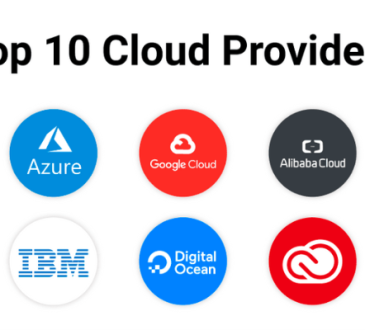
In today’s digital age, data has become the lifeblood of businesses and individuals alike. The sheer volume and importance of data necessitate robust and reliable storage solutions. This is where cloud storage services come into play. Cloud storage services have revolutionized the way we store, manage, and access our data, offering unparalleled convenience, scalability, and security. In this article, we will explore the world of cloud storage services, their benefits, popular providers, and their impact on various sectors.
Contents
Understanding Cloud Storage Services

To comprehend the significance of cloud storage services, it is crucial to understand what they entail. Cloud storage refers to the practice of storing data on remote servers accessed via the internet. Unlike traditional storage methods that rely on local hardware, cloud storage allows users to access their files from anywhere, at any time, using various devices. This flexibility makes it an attractive option for businesses, organizations, and individuals seeking efficient data management solutions.
Advantages of Cloud Storage Services
Cloud storage services offer a myriad of benefits that have transformed the way we handle data. Let’s delve into some of the key advantages:
a) Accessibility and Flexibility: Cloud storage enables users to access their data from any location and device with an internet connection. This flexibility allows for seamless collaboration, remote work, and easy file sharing, boosting productivity and efficiency.
b) Scalability: Traditional storage methods often require costly hardware upgrades to accommodate increasing data volumes. Cloud storage services eliminate this hassle by offering scalable solutions that can expand or contract based on specific needs. Organizations can easily adjust their storage capacity without major upfront investments, ensuring optimal resource allocation.
c) Cost-Effectiveness: Cloud storage services operate on a pay-as-you-go model, eliminating the need for expensive infrastructure investments. Users only pay for the storage they consume, reducing operational costs significantly.
d) Disaster Recovery and Data Security: Cloud storage providers implement robust backup and redundancy mechanisms, ensuring data integrity and protection against hardware failures or natural disasters. Data is stored in multiple locations, minimizing the risk of loss. Additionally, encryption and authentication protocols safeguard sensitive information from unauthorized access.
e) Collaboration and Sharing: Cloud storage services provide seamless collaboration features, allowing multiple users to work on shared documents simultaneously. Version control, real-time editing, and commenting features streamline teamwork, making it ideal for businesses and project-based collaborations.
Popular Cloud Storage Services Providers

Several prominent cloud storage service providers dominate the market, each offering unique features and capabilities. Let’s explore some of the most popular ones:
a) Google Drive: Google Drive, integrated with Google’s productivity suite, offers a user-friendly interface, generous free storage, and seamless integration with other Google services. It provides ample collaboration tools, making it a preferred choice for individuals and businesses of all sizes.
b) Dropbox: Dropbox gained popularity for its simplicity and ease of use. It offers reliable syncing, file sharing, and collaboration features, making it suitable for both personal and professional use. It integrates well with various third-party apps and platforms.
c) Microsoft OneDrive: OneDrive, part of the Microsoft 365 suite, provides robust collaboration tools and tight integration with Microsoft’s ecosystem. It offers seamless syncing, sharing, and editing capabilities, making it an excellent choice for Windows users and businesses utilizing Microsoft’s productivity tools.
d) Amazon S3: Amazon Simple Storage Service (S3) is widely adopted by businesses for its scalability, durability, and security features. It caters to enterprises with large-scale data storage requirements and offers high availability and reliability, making it suitable for critical applications.
e) Apple iCloud: Apple’s iCloud is specifically designed for Apple users, seamlessly integrating with iOS, macOS, and other Apple devices. It offers automatic backups, file syncing, and easy access to photos, documents, and other data across multiple devices. iCloud Drive provides efficient file storage and sharing capabilities.
f) Box: Box is a cloud storage and collaboration platform that caters to businesses and enterprises. It offers robust security features, advanced admin controls, and integrations with popular productivity tools. Box’s focus on data governance and compliance makes it a preferred choice for industries with stringent regulatory requirements.
g) pCloud: pCloud is a secure cloud storage provider known for its emphasis on privacy and data protection. It offers client-side encryption, zero-knowledge authentication, and lifetime storage options. pCloud stands out for its user-controlled file sharing and backup features.
h) Dropbox Business: Dropbox Business extends the functionality of the standard Dropbox service with enhanced security, team management features, and advanced collaboration tools. It provides centralized administration, file activity tracking, and seamless integration with various business applications.
Cloud Storage Services in Various Sectors

Cloud storage services have made a significant impact across various industries and sectors. Let’s explore how different sectors leverage cloud storage solutions:
a) Business and Enterprise: Cloud storage enables businesses to streamline data management, enhance collaboration, and reduce operational costs. It facilitates remote work, simplifies document sharing, and ensures data accessibility across distributed teams. Cloud storage also plays a crucial role in business continuity planning, providing reliable backup and disaster recovery solutions.
b) Education: Cloud storage has revolutionized education by providing a platform for easy document sharing, collaborative assignments, and virtual classrooms. It allows educators and students to access educational resources from anywhere, promoting remote learning and enabling seamless collaboration among students and faculty members.
c) Healthcare: Cloud storage solutions offer healthcare providers a secure and efficient means to store and share patient data. It allows for easy access to medical records, enhances collaboration among healthcare professionals, and facilitates telemedicine services. Cloud storage also ensures compliance with stringent data protection regulations in the healthcare industry.
d) Media and Entertainment: The media and entertainment industry generates vast amounts of digital content. Cloud storage provides a scalable and cost-effective solution for storing, managing, and distributing media files. It enables remote collaboration among creative teams, simplifies content sharing with clients and partners, and ensures reliable backups for valuable intellectual property.
e) Research and Development: Cloud storage services play a vital role in research and development by offering secure data storage and facilitating collaboration among researchers. It allows for data sharing across institutions, promotes reproducibility in scientific experiments, and enables efficient data analysis.
Conclusion
Cloud storage services have transformed the way we store, manage, and access our data. With their flexibility, scalability, and robust security measures, they have become indispensable tools for businesses, individuals, and various industries. The convenience of accessing files from anywhere, the cost-effectiveness of pay-as-you-go models, and the collaborative features have made cloud storage an essential component of modern data management strategies. As technology advances and data volumes continue to grow exponentially, cloud storage services will play an even more significant role in empowering businesses, facilitating innovation, and enabling seamless connectivity in our increasingly digital world. Embracing the power of cloud storage services can unlock a world of possibilities, ensuring efficient data management, enhanced productivity, and peace of mind when it comes to data security and accessibility.



